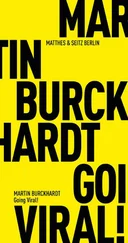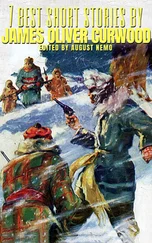She had two copies made of the memory stick, and he left one with her. Then they hugged clumsily again and he left. She was looking at her watch when he turned back.
HIS NEXT STOP was Georgetown. Perry Gardner . Charles Mallory had known for some time that he was going to have to confront Gardner, so he had asked Chidi Okoro to mine everything he could find on Gardner’s habits and personal life. He’d known it would be a challenge. Gardner was a fanatically guarded man who kept layers of protection between himself and the public. He’d installed the world’s most sophisticated security system at his homes and offices in Oregon. When he traveled, a small entourage went with him, including at least one armed guard. When he stepped out for a jog, employees ran on either side, as if he were the President of the United States. Mallory wondered if he asked assistants to join him in the shower.
But Okoro had been able to find chinks that Charlie could use. One of the secrets to Perry Gardner was that in some ways he had never fully grown up. Much of what he had accomplished were the things he had dreamed about as a kid. He was a visionary genius, whose imagination and ambition hadn’t been reined in the way most people’s were. He still indulged his childhood interests in science fiction, comic books, and 1960s television because they had allowed him to dream. And he still dined on hamburgers, French fries, and strawberry milkshakes even though he could afford caviar and Dom Pérignon.
Gardner was a man inspired by large-scale historical Americans, chief among them Lincoln. When he visited Washington, there was one thing he never seemed to do with an entourage. It was to climb the steps to the Lincoln Memorial after dark, where he would read Lincoln’s words on the walls and spend some minutes communing with the giant nineteen-foot-tall statue of the sixteenth president, as if it were a religious icon.
When he traveled to Washington on business, Gardner always stayed in the Presidential Suite at the Hay-Adams Hotel, across the street from the White House. But this business was different. More surreptitious. Okoro had learned that Gardner also occasionally stayed at one of two three-story townhouses in Georgetown. Townhouses that, according to D.C. property records, were owned by Eliza Parker and the H. Hamlin Group, respectively. Eliza Parker had been the name of Mary Todd Lincoln’s mother. Hannibal Hamlin had been Lincoln’s first vice president.
It was at the H. Hamlin townhouse on Q Street that Charles Mallory spotted a figure walking in front of a light behind the shade of a second-story window as dusk settled on the autumn streets.
Charlie returned to the small park three blocks away and sat on a bench. He plugged the video feed of Richard Franklin into his laptop computer. Watched it once all the way through. Cued it up, then returned to the street in front of the Hamlin townhouse. Sat on a stoop in the next block and waited, pretending to be reading text on his computer screen. Several minutes later, he saw movement again.
There was no Metro station in Georgetown, so if Gardner wanted to travel in the city, he would probably call a cab or a driver. A cab would be less conspicuous. It was fully dark by the time an Empire cab pulled up at the corner.
Mallory walked up to M street and hailed a cab, too. Had it deliver him to a dark stretch of Constitution Avenue near the Vietnam Veterans Memorial. He walked among the trees, through the night shadows, and sat on a bench across from the Lincoln Memorial. Watched Gardner’s shadow emerge at the top of the steps in front of the giant figure of Lincoln. Gardner turning, looking up, then standing beside a pillar, facing the Reflecting Pool and Washington Monument. Moving with a strange grace, as if he were performing.
Mallory began to walk steadily toward the base of the steps. Lincoln seemed to look down at him. Charlie climbed the marble stairs, but off to the left side. Two-thirds of the way up, he stopped and sat.
He opened his laptop and waited, gazing out toward the Korean War Memorial, the World War II Memorial, the Washington Monument.
The evening air was cool and breezy, refreshing. Traffic was sparse. When he finally heard Gardner’s heels, lightly thunking on the steps above him, Charlie stood. Climbed the steps, moving in a diagonal toward him.
“Mr. Gardner!” he called.
Perry Gardner stopped. Charlie stepped up into his shadow. He clicked the “Start” button on his laptop. Held it out, letting Gardner see the video feed.
The image on the screen was Richard Franklin. He was saying, “Don’t you understand? Perry Gardner’s firm is a threat. Because technology is a threat. The technology his company has developed could make the United States technologically obsolete if we let it. So we chose to bring him in, rather than bring him down. That’s our mission.”
Gardner, standing seven feet away, showed no expression. He was an ordinary-looking man in some ways, but there was a remarkable coldness in his eyes and an off-putting self-assurance in the way he carried himself.
Charlie closed the laptop. “You want to talk? I’ll show you the rest if you’d like.”
For a moment, Gardner seemed to look for what wasn’t there: back-up, support, ways of escape. But then he smiled and his eyes focused, with an intensity Charlie recognized. They reminded him of eyes he had seen recently.
“No, thank you,” Gardner said, and he began to walk, as if he were by himself.
“Are you sure? Why don’t we go sit on a bench and I’ll show you some more.”
“No, thanks.”
Mallory walked beside him. He opened the laptop again and started the video feed. Punched up the volume. Gardner stopped, six feet away, and watched silently. After it ended, he showed a flat smile, staring at him. That’s when Charlie recalled where he had seen eyes like that before. In an alley in Nice. The eyes of Ahmed Hassan . Desperate, determined eyes.
“How did you get that ?” Gardner said, with a false indifference.
“Does it matter? The press has it, too. The attorney general has it.”
“There’s nothing they can do with it.”
“No? Why not?”
“National security.”
“You think so.”
“A little knowledge can be a dangerous thing,” he said. “And that’s all you’ve got.”
“Well. We’ll see.” Mallory closed his computer again. “At any rate, I have some good news and bad news for you. First, the good news. Landon Pine destroyed the viral properties several days ago. It wasn’t going to happen anyway. You don’t have to worry about Hassan using it as a terrorist weapon. That should make you sleep a little easier.”
Gardner looked at Mallory through his smudged glasses and smiled. Something had infected him, Charlie thought. A virus had gotten inside him and stolen the emotional components from his make-up.
“According to our friend Franklin, you were the one who invented Isaak Priest. It wasn’t a bad plan,” Charlie said. “It might have worked. Your big mistake was bringing in the Hassan Network, and then giving them such power.”
“You know nothing about it.”
“That’s what your partner told me. He said it was your fatal mistake. It made Richard Franklin nervous, too, didn’t it?” Mallory knew Gardner didn’t have a weapon. He was pretty sure he’d never been in a fight before, and yet he carried himself as if he were invincible. “I assume you think I took out Landon Pine.”
“I know you did.”
“No. Actually, he took himself out. I was there. He thought the Hassan Network was going to hijack the operation. And he also thought you—or the government—were going to make him take the fall for whatever happened. For some reason, he had stopped trusting you. He didn’t know about Covenant Division.”
Читать дальше












